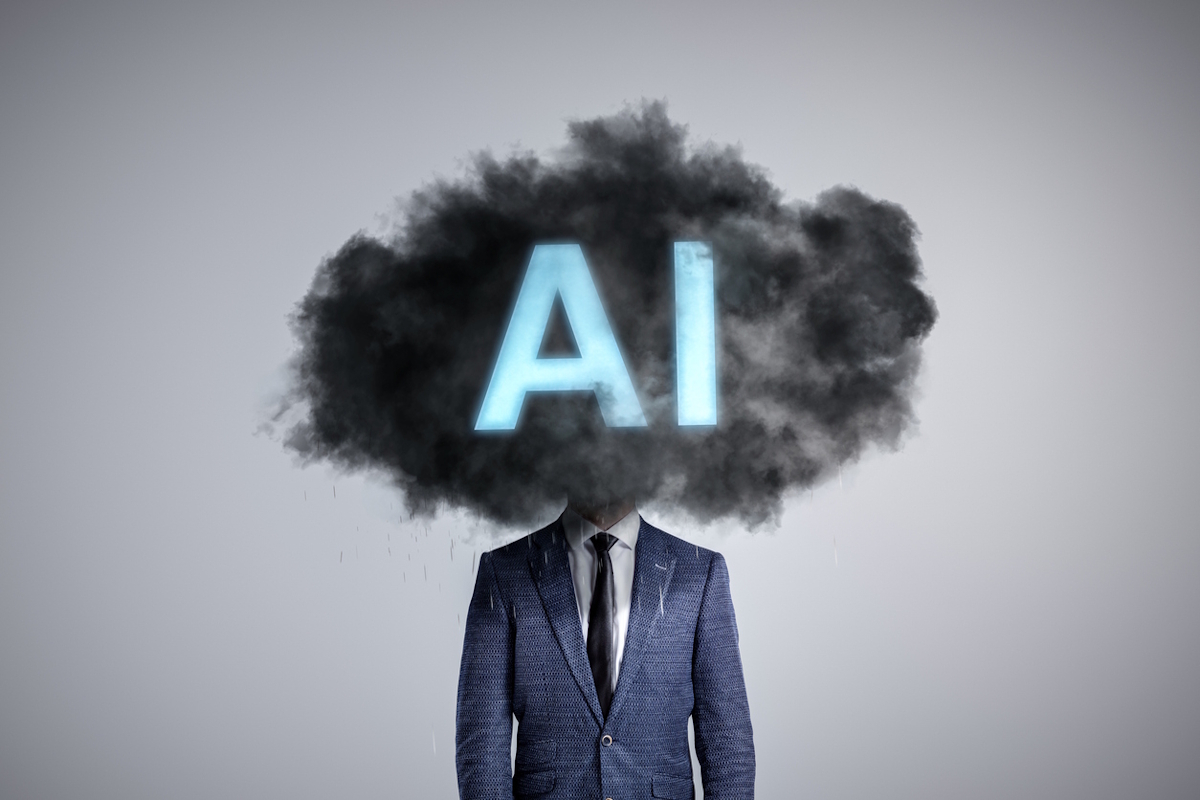The five stages of AI grief

Andy Martinus at global creative agency HB argues that professional services must let go to lead forward
Denial. Anger. Bargaining. Depression. Acceptance.
Professional services firms are working their way through the five classic stages of grief in their response to AI. Take law firms still arguing that AI can’t match human legal judgment, or consultancies nervously trialling AI tools only to quietly shelve them months later.
Meanwhile, early adopters like Allen & Overy and Simmons & Simmons are investing in AI and building tools that improve productivity and support internal governance.
In sectors like law, consulting, and accounting, this is becoming a serious issue. It’s slowing the uptake of a transformative technology. According to LexisNexis, 78 per cent of legal professionals still aren’t using AI. And the longer firms wait, the harder it will be to catch up, not just operationally, but reputationally.
The identity crisis
Professional service firms often point to concerns about data privacy, security, or misuse to explain their slow adoption of AI, but the real barrier is emotional. It’s a sense of discomfort around what AI means for the profession’s identity and perceived value.
AI is not just a technical upgrade, it’s a cultural reckoning. These industries are built on precedent, process and human expertise, but in many ways AI is outpacing those systems. It challenges not only how firms work, but what they charge for.
This is where grief becomes a useful lens. In the denial phase, firms say AI isn’t ready, or isn’t relevant to what they do. Anger sounds like: “AI can’t do what a real lawyer/accountant/consultant does.” Bargaining often looks like narrowly scoped pilot programmes or relegating AI to back-office tools.
According to Littler’s 2024 Employer Survey, 44 per cent of companies say they’re using AI in some form, but only 12 per cent are confident they have the right policies and oversight in place. It shows that many firms are experimenting but not actually integrating it.
Then there’s the quiet sense of uncertainty, or depression, as people wonder what happens to junior roles, to traditional billable models, or to how clients perceive expertise. Is their value about to be obsolete?
However, some firms have moved to acceptance; they’re pushing forward. Allen & Overy were early to invest in Harvey, integrating AI into legal workflows for thousands of lawyers. Simmons & Simmons launched Percy, an internal AI assistant that’s already used by the majority of staff to help with governance and admin tasks. McKinsey developed an internal AI tool trained on its own data, improving access to institutional knowledge and saving consultants hours of searching.
These companies aren’t trying to replace people: they’re using AI to handle routine tasks so their teams can focus on the work that still needs human expertise. If you have a strong brand, people aren’t going to question the tools you use; there is implicit trust, which will make it easier for some to introduce bold AI initiatives.
Moving through the stages
To move forward, firms need to re-evaluate how they define and deliver value, and accept that AI is here to stay. That starts with letting go of the idea that time equals quality. AI can cut down the time it takes to do everyday tasks like research, admin, and drafting, work that used to fill the bulk of a professional’s billable hours.
McKinsey estimates that 60 to 70 per cent of employee time in professional services is spent on predictable, repeatable tasks, many of which AI is already capable of streamlining. And that’s ok: it frees professionals to focus on work that clients actually value. It’s not about doing more for less but about being able to deliver greater impact at existing budgets.
However, doing this well requires more than switching on a new tool. It means rethinking workflows and expectations. It means accepting that expertise is no longer defined by hours worked, but by outcomes delivered. That’s a shift in culture as much as process.
The firms leading the way aren’t just adding AI, they’re adapting how they operate around it. They’re bringing together people from across departments, legal, operations, marketing, finance, to figure out where AI can actually help, and to put some sensible boundaries in place.
They’re investing in training, not just to teach prompt engineering, but to help teams understand where AI can genuinely save time and reduce error. And they’re embedding AI where it makes the most impact: improving internal systems, not just front-facing features.
AI is influencing most industries, including ours as a creative agency. When used to support people within workflows, it brings obvious efficiencies, but more importantly, it allows our teams to focus on the human endeavour of creativity. Like in professional services, that’s the value we need to double down on and communicate: the thinking, not just the tools.
This is also where brand matters. As AI becomes more visible in how services are delivered, brand becomes a key differentiator. It tells clients that while tools may evolve, the thinking and standards behind them remain high. It shows you have the confidence in your brand to adopt new technologies. It also shapes how firms are interpreted by AI tools themselves.
If you don’t actively shape your digital presence and value proposition, you risk being misrepresented or overlooked by both algorithms and clients.
What comes after grief
There’s no quick way through the five stages, but the way forward is clear. Firms that stay in denial or bargaining will find it harder to compete. Clients increasingly expect their advisors to be both knowledgeable and efficient, and using AI is quickly becoming a basic expectation.
The good news is that firms don’t have to lose their identity, but they do have to evolve it. The goal isn’t to replace human expertise, it’s to free it up.
Acceptance doesn’t mean giving over to AI. It means learning how to work with it, on your own terms, and in ways that add value for both clients and your team. The sooner firms accept that, the better positioned they’ll be to lead – not to trail behind – the transformation.
Andy Martinus is digital director at global creative agency HB
Main image courtesy of iStockPhoto.com and photoschmidt

Business Reporter Team
Most Viewed
Winston House, 3rd Floor, Units 306-309, 2-4 Dollis Park, London, N3 1HF
23-29 Hendon Lane, London, N3 1RT
020 8349 4363
© 2025, Lyonsdown Limited. Business Reporter® is a registered trademark of Lyonsdown Ltd. VAT registration number: 830519543





